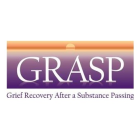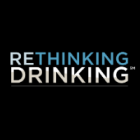Tag Archives:WEBSITE
GRASP: Grief Recovery After Substance Passing share
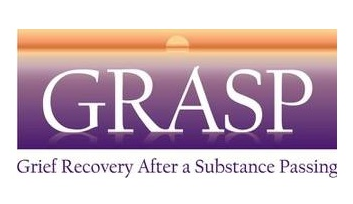 If you are coping with the tragic death of a loved one due to drugs, including alcohol, GRASP can provide much needed understanding and support. In my experience, this kind of loss can be much more complex than the “expected” end-of-life passing of an elder or, even, terminal illness. Strong feelings of anger, guilt, and possibly even relief can be experienced by survivors of an addicted family member or dear friend. GRASP can help you to determine if there is a support group local to your area, provides written information from people who understand what you’re going through, has links to other resources, hosts retreats and conferences, and has a closed group on Facebook where you can seek support from others who have had similar experiences to your own.
If you are coping with the tragic death of a loved one due to drugs, including alcohol, GRASP can provide much needed understanding and support. In my experience, this kind of loss can be much more complex than the “expected” end-of-life passing of an elder or, even, terminal illness. Strong feelings of anger, guilt, and possibly even relief can be experienced by survivors of an addicted family member or dear friend. GRASP can help you to determine if there is a support group local to your area, provides written information from people who understand what you’re going through, has links to other resources, hosts retreats and conferences, and has a closed group on Facebook where you can seek support from others who have had similar experiences to your own.
National Alliance for Grieving Children share
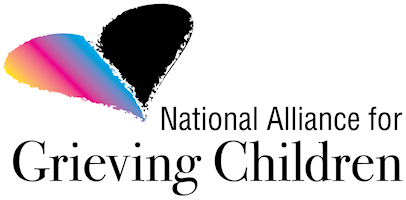 The National Alliance for Grieving Children has information available on their website to help kids to cope with the death of a special person in their life. There are articles, books, and links to finding local support, such as Peter’s Place, as well specialty services such as camps for kids who have lost a parent. Children need someone that they can talk to about death and loss. A lot of times, parents and other close adults can meet these needs. This resource can both support the adults in children’s lives to feel comfortable with having these conversations, or guide you to finding others that can help as well.
The National Alliance for Grieving Children has information available on their website to help kids to cope with the death of a special person in their life. There are articles, books, and links to finding local support, such as Peter’s Place, as well specialty services such as camps for kids who have lost a parent. Children need someone that they can talk to about death and loss. A lot of times, parents and other close adults can meet these needs. This resource can both support the adults in children’s lives to feel comfortable with having these conversations, or guide you to finding others that can help as well.
Compassion & Choices share
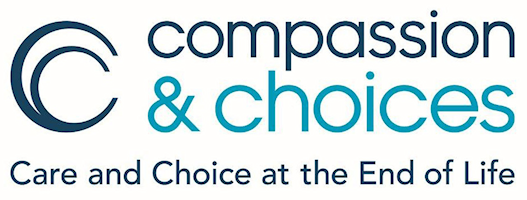 Compassion & Choices is a website where you can find resources to help guide you or a loved one to think through and communicate to others how you would feel the most comfortable and cared for during end of your life. There is no “right way” to approach the final weeks and months at the end of one’s life, which is why it’s so helpful to be able to communicate to your loved ones what choices feel right for you. This can range from how extensive or heroic you want medical intervention to be all the way to whether you are spending your final days in the hospital, a nursing home, or in your own home. Heck, if you are physically to the point that you can’t communicate what you want, do you want the tv on in your room, music played, or just the quite murmur of your loved ones in the room?
Compassion & Choices is a website where you can find resources to help guide you or a loved one to think through and communicate to others how you would feel the most comfortable and cared for during end of your life. There is no “right way” to approach the final weeks and months at the end of one’s life, which is why it’s so helpful to be able to communicate to your loved ones what choices feel right for you. This can range from how extensive or heroic you want medical intervention to be all the way to whether you are spending your final days in the hospital, a nursing home, or in your own home. Heck, if you are physically to the point that you can’t communicate what you want, do you want the tv on in your room, music played, or just the quite murmur of your loved ones in the room?
The guides provided at this site can help you think through and document/communicate what your wishes are. Not only will this make your end of life experience a better one for you, but your loved ones will also feel more confident that they are advocating for what you really want, so there is less anxiety and guessing for them.
Other Anxiety & Depression Links share

Individual Websites
Families for Depression Awareness
Skills That Are Helpful with Anxiety & Depression
- How to Use Mindfulness to Work With Difficult Emotions: A Six Step Process
- How to Mindfully Sit with Anxiety
Articles
Talking to Children About Terrorism and War (American Academy of Child & Adolescent Psychology)
Khan Academy: SAT Prep & Academic Instructional Videos share
 Stuck on math? Need help with Science? History confounding you? This website covers pretty much any topic except foreign language and writing your English essays. Khan Academy is a wonderful resource that provides Free SAT Prep (you can even link it to your College Boards account, to customize what you would benefit from working on) plus instructional videos on numerous academic topics.
Stuck on math? Need help with Science? History confounding you? This website covers pretty much any topic except foreign language and writing your English essays. Khan Academy is a wonderful resource that provides Free SAT Prep (you can even link it to your College Boards account, to customize what you would benefit from working on) plus instructional videos on numerous academic topics.
I love the story behind this website. It all started when the founder, Salaman Khan, started to remotely tutor his cousin in math using online tools. Soon he discovered that the resources that he was putting online was helping a broader audience than just his family. Soon, Salaman Khan developed a vision of creating an online resource that could level the economic playing field by providing quality educational content no matter how rich or poor you are or whether you lived in an affluent or a poorer, remote area. He went on to develop a relationship with the College Boards, so now a student can link their PSAT or SAT scores to Khan and have access to tutorials and practice that is specific to their needs, without having to pay hundreds of dollars to a prep course.
More Resources for Parents of People with Addiction share
 This month there is a very interesting article in Money Magazine, These Parents are Cutting Off Their Opioid Addicted Children: And it’s the Toughest Decision of their Lives by Kristen Bahler. It speaks to the very difficult choice many parents in this position face, financially. As with everything else, there is no singular path that people should follow in every situation. However , a lot of parents eventually come to a point where, partial, or even complete, withdrawal of financial support ultimately is the “right” answer.
This month there is a very interesting article in Money Magazine, These Parents are Cutting Off Their Opioid Addicted Children: And it’s the Toughest Decision of their Lives by Kristen Bahler. It speaks to the very difficult choice many parents in this position face, financially. As with everything else, there is no singular path that people should follow in every situation. However , a lot of parents eventually come to a point where, partial, or even complete, withdrawal of financial support ultimately is the “right” answer.
My training in substance abuse is limited, so I don’t recommend that you consider taking these steps without consulting with a substance abuse professional. Nevertheless, because of the pervasiveness of addiction in our culture, I still find myself working with people around these issues. It’s a tricky issue for parents and I can completely relate to the temptation to try to do what initially feels like being the most supportive parent you can be and then ultimately realizing that you are enabling your child’s unhealthy choices and behavior. I think it’s a normal process that most go through until they find a balance of what’s right for them.
One thing I will say, overall…I definitely recommend that setting financial boundaries, as well as personal ones, work best when framed in a firm yet loving/accepting way. This is a hard skill to learn. Therapists and support groups can provide guidance about how to do this. I also really like the CRAFT program, which I have written about, previously. The main reason I make this recommendation actually isn’t for the parents’ benefit, it’s for the addicted family member. It’s easier for people to step onto the challenging path towards recovery when they know that your love is, and will always be, there for them. Shame and humiliation only serves to make people feel worse about themselves and gives them more reason to avoid their feelings with intoxication. You have to walk the line of loving acceptance and logical boundaries. Remember, love doesn’t mean doing everything they expect of you.
There is one critical detail that I think a lot of parents, and even some professionals, overlook when parents are stuck in rescue mode. It’s important to understand that there is a subtle message that is communicated when we repeatedly bail out our kids, “I don’t think you are capable of solving this problem or even figuring out how to attempt to solve this problem,” and, “It’s my job to protect you from all of life’s stresses and discomforts.” The biggest problem with this underlying message is that everyone’s life involves being able to tolerate discomfort and solve problems. These are core life-skills that we all need to learn, one way or another, and the only way to do this is through uncomfortable experience, making mistakes, and becoming more skilled over time. This taps into my favorite thing to teach people about, having a Growth Mindset. I encourage you to check it out.
Getting back to the Money article, there are several resources listed that can be helpful to parents. I will link them here for your convenience.
- Parents of Addicted Loved Ones (PAL) – a faith-based network of parent-volunteer run support groups, including two weekly telephone groups if there isn’t an in-person group close to you. They have a specific, education driven series of presentations, and these resources are available on their website.
- Learn to Cope – online forum for family members of addicted loved ones.
- Substance Abuse and Mental Health Services Administration (SAMHSA) – a government website that, among tons of information and resources, includes several different 24/7 information and treatment referral hotlines.
- Al-Anon & Nar-Anon – volunteer, peer-run groups focusing on educating and supporting loved ones affected by addiction. Based on the 12-step model used by Alcoholics Anonymous/Narcotics Anonymous.
- Grief Recovery After Substance Passing – a community of support groups who have lost loved ones to addiction and overdoses.
Rethinking Drinking share
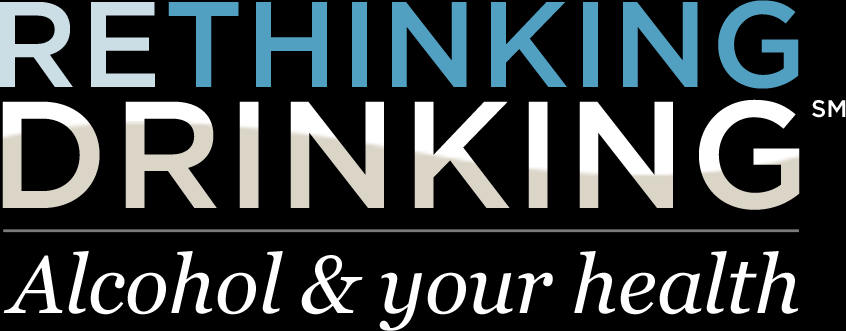 Have you wondered whether you might be drinking a bit too much? Maybe friends have started to suggest that it’s time to think about cutting back. This website, published by the National Institute of Health, provides research-based information that will help you learn more about whether your drinking is still in the safe zone or if it is starting to become a problem. Age, health status, gender are all things that can play a role in how much is too much or how often is too often.
Have you wondered whether you might be drinking a bit too much? Maybe friends have started to suggest that it’s time to think about cutting back. This website, published by the National Institute of Health, provides research-based information that will help you learn more about whether your drinking is still in the safe zone or if it is starting to become a problem. Age, health status, gender are all things that can play a role in how much is too much or how often is too often.
Te site helps you to do the math to see how your alcohol consumption compares to US citizens in general and identify whether you are at risk for problem drinking, If you decide that it’s time to cut back on your drinking, the website offers practical ways to in a way this doesn’t make you feel like a teetotaler but keeps your mental and physical health safer…and perhaps your sense of self-respect too. Bear in mind that for some people, alcohol is an all or nothing deal…one drink and the next thing you know, you’re in blackout. Resources are offered to get help, if you need to stop completely and are struggling to do so.
Community Reinforcement and Family Training (CRAFT) share
 The CRAFT (Community Reinforcement and Family Training) program (briefly described in the video below) was created by the Center for Motivation and Change teaches people who love a person with an addiction how to walk the delicate balance of loving and accepting your loved one for the entirety of who they are right now, including their challenges, while at the same time, being able to have conversations with them that can gradually open their thinking to the possibility of deciding to make a change. It can also help you to “get off of the roller coaster” that addiction creates in people’s lives. You still have to struggle with the emotional pain of watching your loved one who is still on that roller coaster, but you can create a better life for yourself when you recognize what you can and can’t control. Check out their their 20-Minute Guide. This is a private business that I have no connection to. However, I think that what they have to offer is valuable.
The CRAFT (Community Reinforcement and Family Training) program (briefly described in the video below) was created by the Center for Motivation and Change teaches people who love a person with an addiction how to walk the delicate balance of loving and accepting your loved one for the entirety of who they are right now, including their challenges, while at the same time, being able to have conversations with them that can gradually open their thinking to the possibility of deciding to make a change. It can also help you to “get off of the roller coaster” that addiction creates in people’s lives. You still have to struggle with the emotional pain of watching your loved one who is still on that roller coaster, but you can create a better life for yourself when you recognize what you can and can’t control. Check out their their 20-Minute Guide. This is a private business that I have no connection to. However, I think that what they have to offer is valuable.
This model is based on the same science that has created a therapeutic approach called “Motivational Interviewing” that is used throughout the professional substance abuse field. It is a powerful tool that needs to be applied with patience and acceptance. It recognizes the reality that the person with the addiction is truly the only one that can decide to enter treatment and commit to the work that they need to do to stop their substance abuse. This is not a free service, but it may be worth the money. It’s so easy to fall into unpleasant power struggles with a loved one in these situations. These techniques teach you how to be a power struggle ninja and still feel like you are doing what you can to encourage change.
Crime Victims’ Center of Chester County share
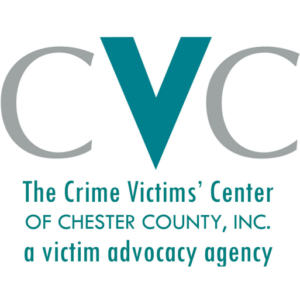 The Crime Victims’ Center of Chester County, Inc. provides free and confidential services to victims and their family members/significant others who reside in or were victimized in Chester County, Pennsylvania. They make the cold and unwelcome world of the court system feel knowable and as effective as possible by practically, and sometimes literally, holding your hand every step of the way. Additionally, free counseling and even money towards expenses that have resulted from being a victim are also available.
The Crime Victims’ Center of Chester County, Inc. provides free and confidential services to victims and their family members/significant others who reside in or were victimized in Chester County, Pennsylvania. They make the cold and unwelcome world of the court system feel knowable and as effective as possible by practically, and sometimes literally, holding your hand every step of the way. Additionally, free counseling and even money towards expenses that have resulted from being a victim are also available.
Since I originally wrote this post, I have now had personal experience with this organization and I can’t say enough good things about them. If you are the victim of a crime, they should be the second place, that you call, after the police/FBI. Even if you are unsure or don’t want to formally report your the crime to the authorities, CVC is there for you, 24-hours/day.
CVC, also known as the Rape Crisis Council of Chester County, Inc., is the designated Sexual Assault Center for Chester County. CVC provides services to victims of all types of crime and violence including, but not limited to: rape, sexual assault, incest, sexual harassment, child abuse, elder abuse, homicide, assault, robbery, identity theft, drunk driving, stalking, and bullying.
Tip: If you don’t live in Chester County, your county will have a crime victims’ center too, but perhaps by a different name. A quick Google search should be able to help you locate the one in your area.
International Bullying Prevention Association share
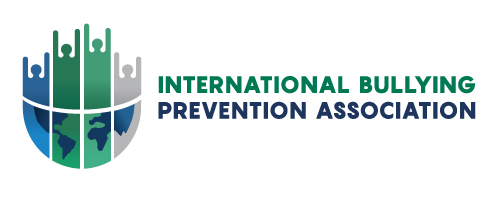 The International Bullying Prevention Association provides resources, training, and information regarding the prevention of bullying, pulling from the latest in scientific research. Periodically, they host webinars that are geared towards parents and educators, for free! You can register to participate when it is happening live or, if you are a member (which costs $25 at the time of this post), you check out their webinar archives at your leisure. Additionally, they host an annual conference to discuss the latest research and programs that are being used successfully.
The International Bullying Prevention Association provides resources, training, and information regarding the prevention of bullying, pulling from the latest in scientific research. Periodically, they host webinars that are geared towards parents and educators, for free! You can register to participate when it is happening live or, if you are a member (which costs $25 at the time of this post), you check out their webinar archives at your leisure. Additionally, they host an annual conference to discuss the latest research and programs that are being used successfully.

